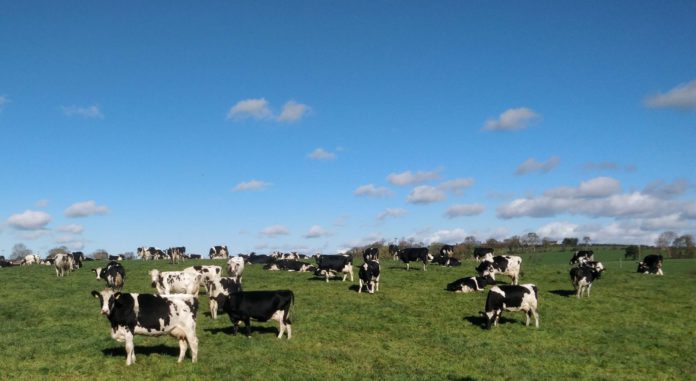As per Teagasc’s definition, contract heifer rearing involves the movement of animals – usually replacement heifers – from the owner’s farm to another farm for rearing on a contract agreement for an fee.
Animals may be moved from and returned to the owner’s farm at different ages, depending on the individual agreements made.
According to the state agency, the practice has increased in popularity on the back of dairy herd expansion following the removal of milk quotas in 2015 and difficulties surrounding land and labour availability.
Michael Bourke, Teagasc drystock advisor, joined Stuart Childs on a recent episode of the Dairy Edge podcast to discuss contract rearing.
He commented: “Contract rearing is a very slow burner; however, every year, there are a few new entrants, and there should possibly be more.”
“Again, it is about a drystock farmer being open-minded; you are working with someone else. Sometimes farmers may find that difficult.”
“Contract rearing is one of many options for drystock farmers. The beef farmer is rearing the dairy farmer’s future herd; it has to work both ways.”
Contract rearing: What to know
In this news article, That’s Farming summarises some of the information Bourke – who has 15 years’ experience in forming contract-rearing arrangements – relayed to listeners.
Benefits
- Not a new idea but something more people may consider in 2023 from a Nitrates and workload perspective;
- “Very profitable” system;
- Steady income each month – Payments generally through direct debit on a monthly basis;
- Drystock farmers can remain in “complete” control of their enterprise;
- Reduces risks from the marketplace – takes beef price volatility “out of the equation”;
- If costings are done correctly, what beef farmers get from this should compensate for leasing out the farm;
- Farmers that are contract-rearing are eligible for DAFM farm scheme payments.
Success:
- Farmers must be open-minded, willing to work with someone else and be “excellent” grassland managers. “If a drystock farmer is not good at managing grass, they are not going to make money out of contract rearing or carry the stocking rate required”;
- Contract rearers have access to dairy farmers to “bounce ideas off” and can improve their grassland management skills;
- Fixed costs generally remain static whether you have 20/50/100 calves – you are still going to have a tractor and a farmyard;
- It is not all about the money – it is more about the people involved;
- Has to be trust between both parties – has to work for both parties;
- Beef farmer should visit dairy farmer and vice versa;
- Important you both get to know each other first – this is a relationship;
- Written agreement at the start – go through it together and sign off on it. Have everything in writing to prevent problems from occurring at a later stage;
- Involve some form of a mediator or a facilitator;
- Some agreements fail to take off the first day – This is possibly the preferable stage for the agreement to fail.
Costs:
- Calves should be weighed on the dairy farm before moving to the beef enterprise;
- Weights: There are two rates – flat rate or weight bonus heifer rearing arrangement, the latter of which is payment is linked to achieving agreed target weights at milestones in the heifer rearing cycle;
- Costs: Costs are “significant” – all about communication and trust. Talk to a dairy farmer in time – at the end of the day, a beef farmer has to maintain a margin out of this and cannot be at a loss. Reason with the dairy farmer;
- Visits can vary, and you should be able to pick up the phone to them – has to be a trust element;
- If costs go up, important to maintain a margin;
- Contract rearing often “far better” option than leasing out land for 7-10 year period;
- Variation: Can involve animals of all stages, but the standard arrangement is a weaned calf going to a drystock farm and returning to dairy enterprise at 20/21-months-old;
- No one set price – depends on arrangement, duration, inputs ect;
- Contact your advisor – Teagasc has a calculator that works for both dairy and beef farmer
Other news articles on That’s Farming:





